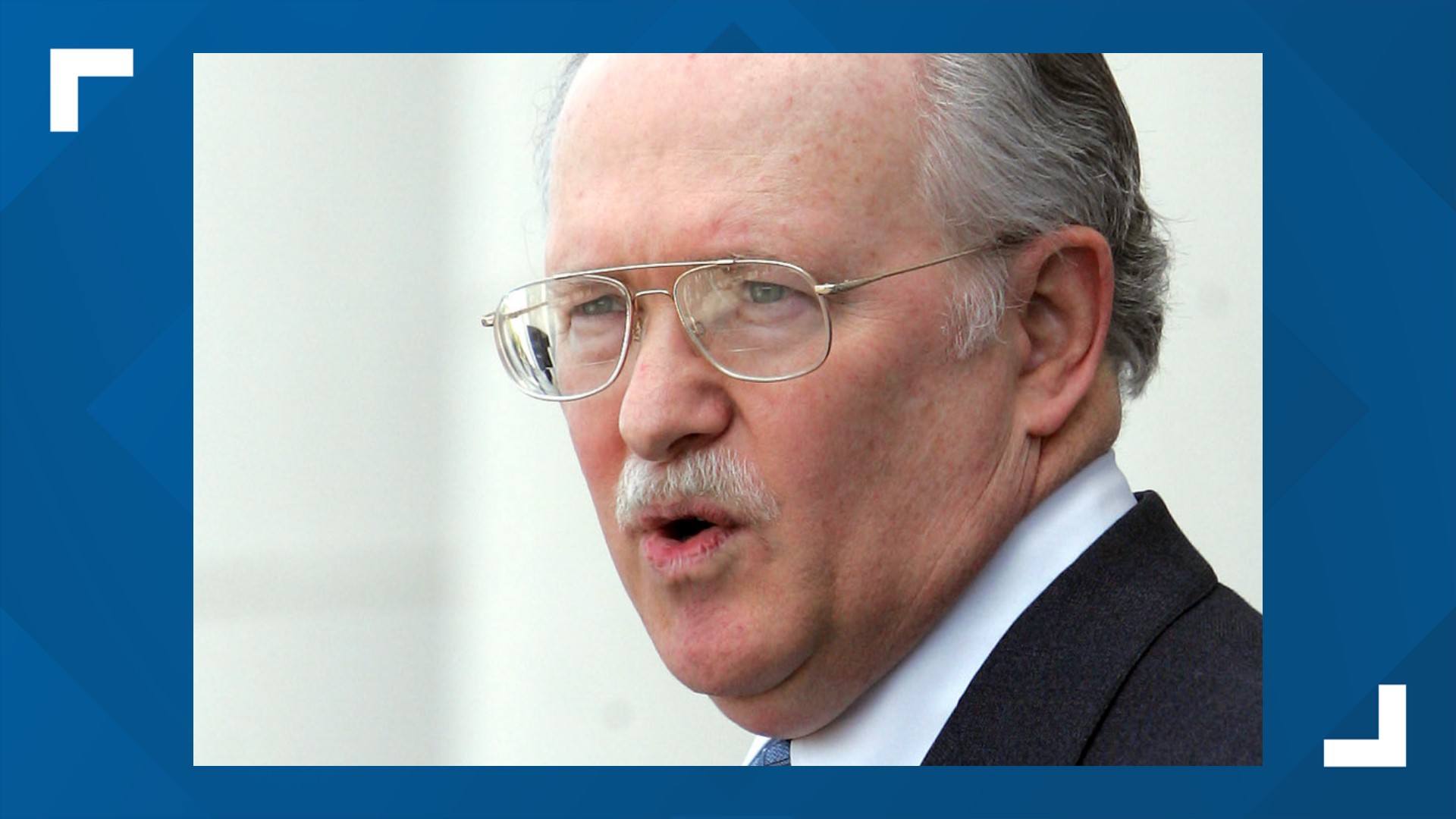Bible-quoting Alabama chief justice sparks church-state debate in embryo ruling
Chief Justice Tom Parker alarmed advocates for church-state separation, while delighting religious conservatives who oppose abortion.

When the Alabama Supreme Court ruled that frozen embryos are considered children under state law, its chief justice had a higher authority in mind.
By citing verses from the Bible and Christian theologians in his concurring opinion, Chief Justice Tom Parker alarmed advocates for church-state separation, while delighting religious conservatives who oppose abortion.
Human life, Parker wrote, “cannot be wrongfully destroyed without incurring the wrath of a holy God, who views the destruction of His image as an affront to Himself.”
The Alabama court’s ruling last week stemmed from wrongful death lawsuits brought by couples whose frozen embryos were accidentally destroyed.
The most immediate impact of the ruling was to leave in vitro fertilization clinics in Alabama potentially vulnerable to more lawsuits and reluctant to administer treatment. But not far behind were mounting worries about Parker’s explicit references to Christian theology.
While Parker’s concurring opinion does not carry the force of precedent, advocates for church-state separation fear he could inspire judges in other states to push the envelope.
“Now we’re in a place where government officials feel emboldened to say the quiet part out loud, and directly challenge the separation of church and state, a foundational part of our democracy,” said Rachel Laser, CEO of Americans United for Separation of Church and State.
She said Parker’s opinion was just the latest example – and a brazen one at that – of government officials advocating for Christian nationalism, a movement that seeks to privilege Christianity and fuse Christian and American identity.
Other instances she cited include Missouri lawmakers citing Catholic and biblical teachings for restricting abortion and U.S. House Speaker Mike Johnson saying the notion of church-state separation in the U.S. was a “misnomer.”
Parker argued in his opinion that the court was merely enforcing the Alabama state constitution, which was amended in 2018 to recognize "the sanctity of unborn life.” That principle has “deep roots that reach back to the creation of man ‘in the image of God,’” Parker said, quoting the Book of Genesis.
Parker sprinkled his opinion with a litany of religious sources, from classic Christian theologians like St. Thomas Aquinas and John Calvin, to a modern conservative Christian manifesto, the Manhattan Declaration, that opposes “anti-life” measures.
He also quoted a Bible verse that is legendary within the anti-abortion movement, in which God told the prophet Jeremiah, “Before I formed you in the womb, I knew you.”
The roots of a ruling Ruling could influence other state courts
The Alabama court’s ruling that frozen embryos are children is an extension of the ideology that undergirds the anti-abortion movement, said Mary Ziegler, a historian of the abortion debate and a law professor at the University of California, Davis.
And it points to the influence of the conservative Christian legal movement, she said. Namely, its position “that the U.S. has an intrinsically Christian Constitution” — a notion that Ziegler and many historians reject.
“The point, I think, for the movement was never just getting rid of Roe," Ziegler said. "It was always to achieve fetal personhood,” the idea that human rights are conferred at conception.
The Alabama ruling could influence decisions in other state courts and legislatures, particularly in the 11 states that already have fetal personhood language in their laws, Ziegler said. But because it’s about the interpretation of a state law, she said the case is unlikely to make its way to the Supreme Court.
'Victory for life' Anti-abortionist applause
Some anti-abortion activists rejoiced at the ruling.
It’s “a tremendous victory for life,” said the powerful Christian legal firm Alliance Defending Freedom. “A beautiful defense of life," said Tony Perkins, head of the Family Research Council.
The Liberty Counsel filed a notice with the Florida Supreme Court, saying the Alabama decision — including Parker's concurrence — should be factored into a pending decision about a proposed amendment to the state constitution that would protect abortion rights.
“Unborn life must be protected at every stage,” Mat Staver, Liberty Counsel's chairman, said in a statement.
Still, Christian perspectives on IVF are mixed, and in some cases, undecided.
While the Catholic Church condemns such reproductive technology as immoral, many Protestant churches and denominations do not have a firm stance against the practice.
Kellyanne Conway, the political consultant who worked for former President Donald Trump, lobbied GOP lawmakers in December to advocate for contraception and fertility treatments. She cited her firm’s finding that even anti-abortion evangelicals overwhelmingly support access to IVF.
Justice Parker's mission No stranger to the debate
Parker is no stranger to church-state debates.
He served as former Alabama Chief Justice Roy Moore’s spokesperson during fights over a Ten Commandments monument Moore erected inside the building housing the Supreme Court.
Parker is a member of Frazer Church, a Montgomery megachurch that until 2022 was part of the United Methodist Church. The congregation, which left amid a UMC schism over the denomination not upholding its LGBTQ clergy and marriage bans, is now part of the Free Methodist Church, a more conservative denomination.
Neither United Methodists nor Free Methodists specifically condemn IVF in their church doctrines. The Free Methodist Book of Discipline emphasizes the value of human life at all stages. It notes that reproductive technologies raise many “ethical, medical, legal and theological questions even as they offer hope.”
Parker was the founding executive director of what is now called the Alabama Policy Institute, which is associated with the evangelical ministry Focus on the Family. On its website, Focus on the Family recommends that married couples not freeze or discard embryos created during IVF.
Fertility experts say IVF without the option of frozen embryos would likely increase the costs of fertility treatments and reduce the chances for patients trying to have a baby.
Setback to the secular state? 'Problematic' action
Because religious groups have different opinions about when life begins, “it’s quite problematic to see a judge essentially embedding a Christian view into state law,” said Greer Donley, an associate professor of law at the University of Pittsburgh who specializes in bioethics and health.
She said that other judges might increasingly apply religious thinking to their decisions.
“It’s particularly notable that (Parker) is not trying to hide that, but even if judges were careful in their language, the result is essentially the same,” Donley said.
Laser, of Americans United, said that even the Alabama court's majority decision — which does not explicitly reference religion — is problematic; it states that all participants in the case “agree that an unborn child is a genetically unique human being whose life begins at fertilization and ends at death.”
“That is not taking into account everyone this policy is going to be imposed upon, including religious minorities, the nonreligious, Christians who have a different belief system,” Laser said. “It undermines true religious freedom.”


